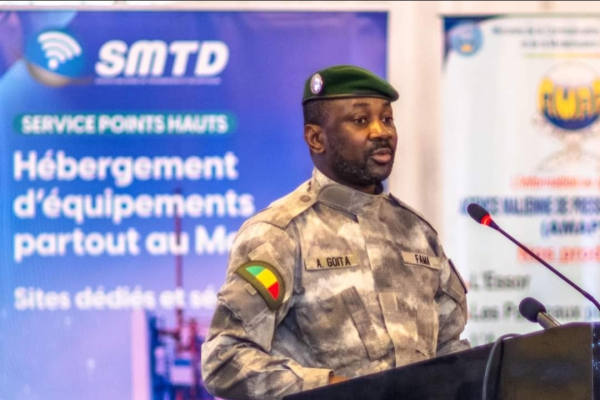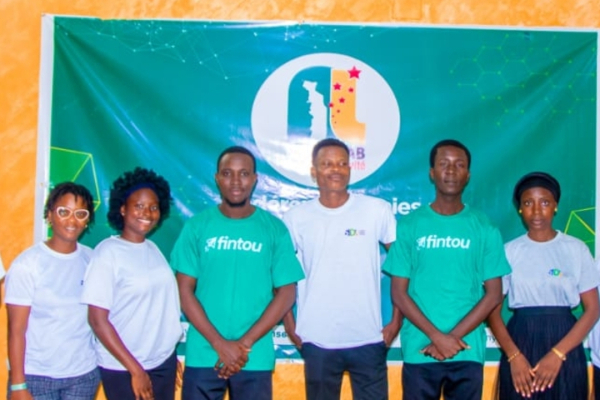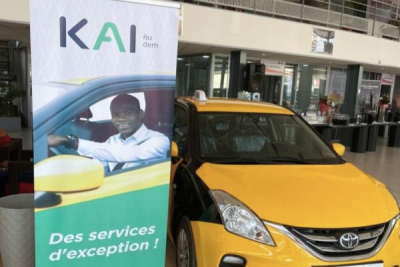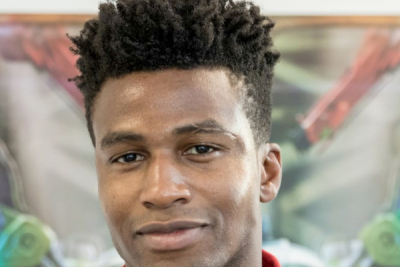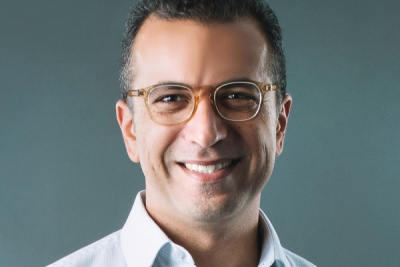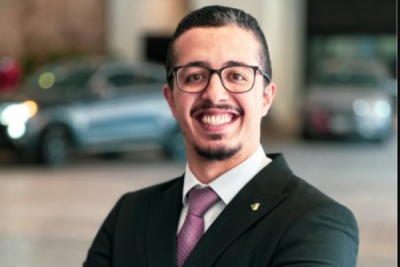African countries fully recognize the benefits that digitization can bring to their economies. They are now committed to seizing these opportunities with determination to maximize the advantages.
Last Friday, July 19th, Colonel Assimi Goïta (photo), President of the Malian Transition, launched the first phase of a program that allows citizens to pay for certain services using their mobile phones.
This initiative, unveiled in President Goïta's speech on June 22nd, 2024, in Sikasso, marks a turning point in Mali's administrative landscape. Initially deployed in the capital city of Bamako, the program will eventually expand to encompass all regions and diplomatic missions. Additionally, the scope of services covered will progressively include taxes and public procurement.
"This initial phase represents a cornerstone. It will be gradually extended to all regions of Mali and diplomatic representations, while progressively integrating all public services, including taxes and public procurement," indicates a presidential statement.
The mobile payment system aligns with a broader vision for Mali's development and modernization, where technological innovation takes center stage. The program aims to streamline administrative procedures, expedite processing times, and optimize the collection of public revenue. Furthermore, it seeks to enhance citizen trust in public institutions by fostering a more transparent and efficient management system.
Mali has historically lagged behind in digitizing public services. In 2022, the United Nations' E-Government Development Index ranked the country at 178th globally. This new initiative, therefore, represents a critical step towards closing the gap and ushering in a more modern administrative system.
Samira Njoya
Inspired by the idea of "Finance for All," Fintou was founded by two tech entrepreneurs to empower entrepreneurs.
Fintou is a fintech solution developed by a Togolese startup that enables users to create and launch crowdfunding campaigns. Founded in 2022 by Kokou Nouvor and Fandam Tahalgbanti, the startup is based in Lomé.
"Fintou was born out of a need for financing to realize a business idea. During our search for funding, we discovered crowdfunding, an alternative financing method that mobilizes interested individuals to finance a project. This inspired us to create a similar platform and test the concept," the founders explained told Togo First.
The solution is accessed through a web browser, as there is no mobile app available. Users can create an account by clicking the "Start" button and entering their information. The startup verifies this information before validating the account. Once verified, users can launch funding campaigns for various projects, set up funds for birthdays or weddings, or organize donations.
"Depending on your project, invite close acquaintances to participate, then expand to your broader network and share the project on social media and with the general public. Regularly update your fundraising page to keep contributors informed," the startup advises.
To facilitate fund collection, Fintou integrates mobile money and bank card options. The fintech offers three subscription plans: free, pro, and expert. The free plan allows collections up to XOF3 million (approximately $5,000). The pro subscription costs XOF20,000, while the expert plan requires a specific request to the startup for pricing details.
Adoni Conrad Quenum
Launched by two youg entrepreneurs, the e-mobility solution aims to facilitate travel in and around the city of Dakar.
Kai is an e-mobility solution developed by a Senegalese startup that enables users to book rides in the city through a mobile app. Founded in 2018 by Pape Seyni Ndiaye and Birane Diagne, the startup is based in Dakar and secured an undisclosed amount of funding in 2021 to support its growth.
The app, available on both iOS and Android, has garnered over 10,000 downloads on the Play Store. Users can create an account by providing their personal information, which allows them to access the startup's services. To book a ride, users select their destination on the map and choose a vehicle type, with the fare displayed upfront.
Kai also allows users to learn more about their drivers. Once a ride is confirmed, users receive a notification when the driver arrives. They can follow a designated route but have the option to add stops or make detours during the journey. For payment, Kai offers several methods, including a preloaded digital wallet, bank cards, mobile money, and cash.
"Kai's services include rides within Dakar, transfers to and from Dakar Airport, and availability for trips within Dakar and to all regions," the startup states. To accelerate its growth, Kai has partnered with CFAO Motors, a vehicle dealership. At its launch in December 2021, this partnership provided the startup with 20 cars.
Adoni Conrad Quenum
A robotics enthusiast and inventor, he has created a popular game robot and developed a tech platform that streamlines data collection for scientists.
Silas Adekunle (photo) is a prominent Nigerian inventor and tech entrepreneur specializing in robotics. He is the co-founder and CEO of Reach Industries, a company focused on assisting scientists and improving laboratory efficiency to address global challenges swiftly.
Founded in 2020 and based in the UK, Reach Industries offers advanced technological services to STEM (science, technology, engineering, and mathematics) companies. One of the startup's key innovations is Lumi, an intelligent platform that employs computer vision, voice recognition, and machine learning to capture and analyze operational data.
Lumi serves as a comprehensive assistant throughout the life sciences development process, from research to production. It automates data collection from experiments, observations, and equipment usage, among other functions. This automation saves valuable time, allowing scientists to concentrate on more significant issues while enhancing the reproducibility of their results.
In addition to his work at Reach Industries, Silas Adekunle founded Awarri, a company that leverages artificial intelligence and robotics to provide educational tools and develop sustainable technological solutions for Africa. Awarri aims to create an ecosystem that prepares young people for the future workforce.
Before these ventures, Adekunle co-founded Reach Robotics in 2013, which gained recognition for inventing MekaMon, a gaming robot integrated with a STEM education platform. In 2017, Apple signed an exclusive distribution agreement with Reach Robotics, impressed by the product.
Silas Adekunle earned a bachelor's degree in robotics technology from the University of the West of England in 2014. During his studies from 2012 to 2014, he designed and launched extracurricular robotics sessions.
To gain experience in robotics, he began as a volunteer intern at RustySquid, a robotics company, in 2011. He then served as a verification engineering intern at Infineon Technologies, a semiconductor manufacturer, in 2012, followed by a software internship at GE Aerospace in 2013.
In 2018, Silas Adekunle was recognized on the Financial Times list of the top 100 minority ethnic leaders in technology in the UK. That same year, he was selected for Forbes' 30 Under 30 Europe in the technology category.
Melchior Koba
As a financial analyst, he leads an innovative company that uses technology to promote financial inclusion in Egypt. His company facilitates access to credit for consumers by working directly with merchants.
Amr Sultan (photo), an Egyptian finance expert and entrepreneur, is the co-founder and CEO of Blnk, a fintech company dedicated to enabling financial inclusion through point-of-sale financing.
Founded in 2021, Blnk specializes in providing consumer credit to underserved populations. The company allows consumers to instantly obtain credit from their favorite merchants and pay in installments over a period of up to 36 months. The credit purchase process through Blnk requires only a national ID card.
Prior to co-founding Blnk, Amr Sultan co-founded Akanar Partners in 2009. As the managing director until 2016, he led this corporate finance and mergers and acquisitions advisory firm, providing services in corporate finance, M&A advisory, fundraising, and structured finance. Akanar Partners was subsequently acquired by Arqaam Capital, an institutional investment bank.
Amr Sultan holds a bachelor's degree in business administration, earned in 1998 from the American University in Cairo. He also became a Chartered Financial Analyst (CFA) in 2001, certified by the CFA Institute.
Sultan began his professional career in 2000 at HC Securities & Investment, an investment bank, as an equity research associate. From 2003 to 2009, he served as co-head of investment banking at Beltone Financial, a financial services provider.
Melchior Koba
His mission is to empower the next generation by equipping them with the technological skills they need to thrive in the modern world. He accomplishes this by designing educational programs for schools, ensuring children receive this training in an innovative and impactful way.
Yaakoub Benarab (photo) is an Algerian tech entrepreneur and the founder and CEO of Snai3i, a company dedicated to transforming education in the Middle East and North Africa (MENA) region.
Founded in 2019, Snai3i develops educational programs aimed at simplifying advanced technologies for children. The company offers schools courses in mobile programming, artificial intelligence, Python, 3D modeling, and mechatronics, all tailored specifically for young learners. It provides schools with immediately usable programs and trains teachers in effective pedagogical methods and course design. Additionally, the platform enables experts to create and publish their own courses. To date, the startup has successfully trained 872 students.
Beyond his role at Snai3i, Benarab serves as an information technology instructor at the Higher Institute of Sciences (HIS), a multidisciplinary private university in Algeria recognized by the Ministry of Higher Education and Scientific Research. He is also an ambassador for One Young World, a global community of young leaders.
Benarab graduated from the National Polytechnic School in 2019 with a master's degree in control systems. He also holds a master's degree in learning design and technologies from Arizona State University, which he obtained in May 2024.
In June 2019, he represented The European Wergeland Centre, a European research organization focused on education for intercultural understanding, human rights, and democratic citizenship. By October 2019, he had taken on the role of director at KnowLab, a coworking space. In 2020, he worked as a technology and innovation specialist at the Africa Crisis Hub, which provides public health advisory services.
Melchior Koba
Improving digital infrastructure in Africa provides robust and reliable cloud services that meet international standards. This enhancement is crucial for the region's digital economy, promoting better internet connectivity and data management.
Schneider Electric and IXAfrica Data Centres have launched East Africa’s largest hyper cloud data centre, NBOX1, in Nairobi, Shneider Electric announced July 18. The Tier 3+ facility is now operational, offering a carrier-neutral, AI-ready environment for cloud, colocation, and connectivity services.
Powered by Schneider Electric's MV and LV switchgear and Kenya's renewable energy, NBOX1 promises stable and reliable services. It aims to attract hyperscale and internet customers with a performance on par with top facilities in North America and Western Europe.
“We believe that sustainable practices are essential for the future of data centres, and we are proud to partner with organizations like IXAfrica to create environmentally conscious and innovative digital habitats for the evolving technological landscape," said Mouna Essa Egh, Schneider Electric’s secure power VP for the Middle East & Africa
The data centre, backed by a $50 million investment from Helios, is strategically located in Africa’s 'Digital Savannah,' serving over 300 million people and a vibrant tech ecosystem.
This development is significant for Africa's digital growth. According to Africa Data Center Market Analysis (2017-2029) by Mordor Intelligence, the Africa Data Center Market is projected to have a capacity of 0.69 thousand MW in 2024 and is expected to grow to 1.23 thousand MW by 2029, with a CAGR of 12.34%. Additionally, the market is forecasted to generate colocation revenue of USD 750.2 million in 2024, reaching USD 1,709.6 million by 2029, growing at a CAGR of 17.91% during this period. The launch of NBOX1 is a crucial step in enhancing the technological capabilities and connectivity in East Africa, fostering further development in the region's digital landscape
Hikmatu Bilali
Establishing regulations that align with international best practices can help African e-commerce platforms improve their competitiveness on the global stage. This can facilitate cross-border e-commerce and open up new markets for businesses on the continent.
The Nigerian government plans to regulate e-commerce platforms and introduce cyber insurance for users. This initiative is part of the draft National Digital Economy and E-Governance Bill under review by the National Assembly.
Sponsored by the Ministry of Communications, Innovation, and Digital Economy, the Bill is in the public engagement phase. It requires e-commerce platforms to provide clear and accurate information about sellers, goods, services, and transaction terms.
During a media engagement in Abuja on July 9, Minister of Communications, Innovation, and Digital Economy Dr. Bosun Tijani said the Bill would create a legal framework to accelerate Nigeria's digital economy. "This Bill will support the growth and transformation of Nigeria’s economy through technology," he said.
Section 40 of the Bill mandates the National Insurance Commission (NAICOM) and the National Information Technology Development Agency (NITDA) to develop cyber insurance regulations for electronic commerce.
Section 39 specifies that e-commerce sellers must provide legal names, addresses, and contact details, ensuring effective consumer communication and legal process service. It also mandates detailed descriptions of goods or services and clear terms and conditions, including payment methods, returns, and refund policies.
If passed, major e-commerce platforms, as well as smaller players, would face stricter regulations and potential new taxes and levies imposed by NITDA. Non-compliance could result in fines.
The proposed legislation is poised to impact the country's rapidly growing e-commerce sector significantly. According to the European Company Database (ECDB) report titled eCommerce Market in Nigeria, this sector is expected to generate $2.68 billion in revenue by 2024 and grow at a compound annual growth rate of 12.8%, reaching $4.34 billion by 2028.
Hikmatu Bilali
After a first funding round that closed on May 6, the Women in the Digital Economy Fund (WiDEF) announced its second round, on July 17. This round offers technical assistance to large private sector enterprises, including those in Africa, to help close the digital gender divide.
WiDEF is a joint effort by USAID and the Bill & Melinda Gates Foundation, managed by CARE, the Global Digital Inclusion Partnership, and the GSMA Foundation. It will provide successful applicants with technical assistance valued between $50,000 and $150,000 for up to two years.
Applications close by September 12.
Zoho, an Indian multinational technology company, has partnered with She Code Africa (SCA), a non-profit organization that equips young girls and women with tech skills. Zoho will train SCA Academy trainers on Zoho Creator, its low-code app development platform, through "Train the Trainer" sessions.
Part of Zoho Creator's 'Young Creators Program' (YCP), the initiative aims to close the technical skill gap by empowering future business leaders with advanced digital skills. Zoho will host 30 female SCA Academy trainers for a three-day training session at its Lagos office, providing them free access to the Creator platform and training resources for a year.
More...
Accurate birth registration data is essential for government planning and budgeting, ensuring efficient resource allocation. It also helps monitor progress towards Sustainable Development Goals (SDGs) such as eliminating poverty, promoting quality education, and reducing inequality.
The United Nations Children's Fund (UNICEF) has underscored the critical need for e-birth registration to ensure Nigerian children obtain a legal identity. Celine Lafoucriere, Chief of UNICEF's South-West Nigeria Field Office, highlighted this during a media dialogue in Lagos on July 17.
The event, organized by UNICEF in collaboration with the Lagos State Ministry of Youth and Social Development and the National Population Commission (NPC), aimed to promote e-birth registration in South-West Nigeria.
Lafoucriere noted that without a birth certificate, a child remains invisible and lacks access to essential services such as protection, health, and education. "Birth registration is a fundamental human right and cornerstone of a child's legal identity," she said.
The dialogue underscored the collective effort required to ensure every Nigerian child is registered and has access to their legal rights and essential services.
According to the 2022 ‘Statistical Update on Birth Registration in Africa’ by UNICEF and the UN Economic Commission for Africa (UNECA), out of the 164 million children under 5 worldwide who are unregistered, over half (approximately 91 million) reside in Africa. This lack of registration hinders effective planning and policy-making, as accurate data is crucial for these processes.
The E-birth registration will allow parents to register their children immediately after birth, addressing accessibility challenges in Nigeria. This system supports robust civil registration and generates vital statistics for effective planning and policy implementation.
Hikmatu Bilali
Stakeholders from government, civil society, donors, academia, and private industry are in Nairobi, Kenya, for DataFest Africa 2024, held from July 17-19. Organized by Aga Khan University and Pollicy, the event is themed "Opportunities for All: Harnessing Data & Technology for Africa’s Transformation."
Since 2019, DataFest Africa has celebrated data science's impact on the continent. This year's conference aims to foster discussions and innovations to help Africa harness data and technology for development.
A veteran of the technology sector with over 10 years of experience, he has also spent more than 8 years specifically within the gaming industry. Currently, he leads one of Africa's biggest video game development companies.
Thomas Shiva (photo) is a Rwandan serial entrepreneur active in the video game industry. He is the founder and CEO of Digital Realm Entertainment, a technology company specializing in interactive entertainment software.
Founded in 2019, Digital Realm Entertainment publishes interactive entertainment software, providing Africans with easy access to video games that reflect the continent's cultural identity, heritage, and interests. The company offers games in education, health, and culture, delivering immersive and personalized solutions to meet its clients' specific needs.
In addition to his role at Digital Realm Entertainment, Thomas Shiva holds several other positions. Since 2019, he has been the founder and executive director of the Rwanda Game Developers Association, an organization that raises awareness among Rwandan gaming and development communities about the gaming industry. The association participates in and organizes various industry events worldwide.
Since 2020, Thomas Shiva has also been the CEO of Neo-Troniks Systems, a company aiming to provide Africa with local access to the latest cutting-edge technologies. In May 2024, he became the local lead for Rwanda for the NASA International Space Apps Challenge, an international space exploration competition held over 48 hours in different cities worldwide.
Additionally, he is the regional organizer for The Global Game Jam in Rwanda, an international video game creation competition. In 2015, he founded the Open Source Collective Association, and in 2020, he launched Neo-Realm Aerospace, a space technology startup in Rwanda.
Thomas Shiva holds a software engineering degree from the University of the People, an online university based in California, USA. He is also a graduate of the SAE Institute Germany, where he earned a bachelor's degree in game design and interactive media.
An international speaker and pioneer in developing local African technology ecosystems, Thomas Shiva has participated in numerous conferences and events. Since 2021, he has been a mentor at the International Game Developers Association, and in 2022, he served as a judge for various Global Startup Awards competitions.
Melchior Koba
With the ongoing technological revolution, African countries have established a timeline for digitizing their various sectors. In Madagascar, the digitization of the education sector is progressing steadily.
Malagasy authorities kicked off the digitization of the country's educational system during a three-day workshop held in Toamasina from July 15 to 17. The project, which begins in the Atsinanana region, aims to equip educational administration zones and schools with the necessary tools and resources to harness the power of digital technologies.
This initiative seeks to establish a comprehensive system for monitoring staff attendance, managing school fund transfers and expenditures, expediting data collection, facilitating remote learning opportunities and maintaining accurate student registries.
"The extension of digital services in the Atsinanana region is a significant first step in the digital transformation of the education sector in Madagascar. The Digital Governance Unit and the Ministry of National Education plan to extend this project to other regions of the country in the coming years," the Ministry of National Education (MEN) declared in a statement.
The Malagasy government is actively forging partnerships to support the digitalization of its education system. Since 2014, the MEN has partnered with Orange Solidarité Madagascar on the "Digital Schools" program, which aims to leverage new technologies to improve access to education. Most recently, in February 2024, the MEN joined forces with UNICEF to connect secondary schools to its digital library.
Adoni Conrad Quenum


